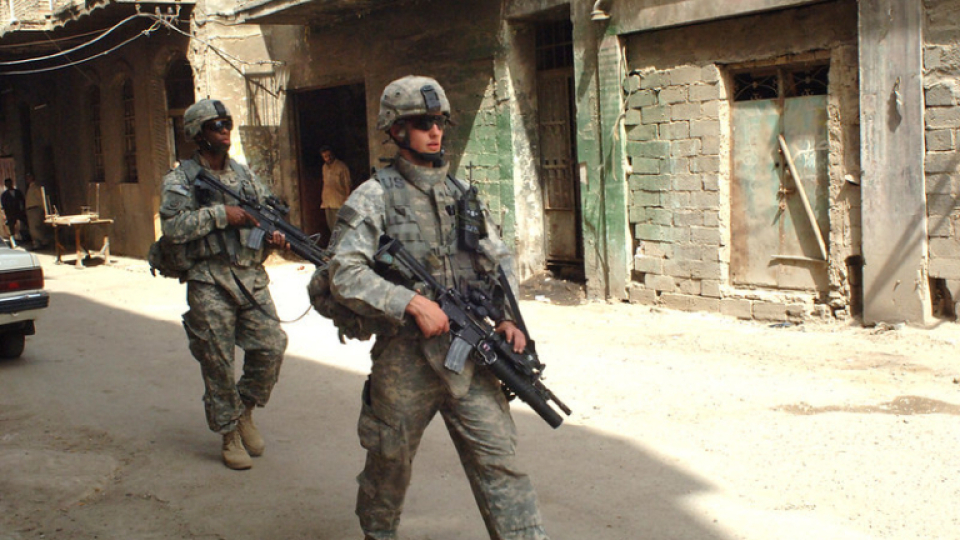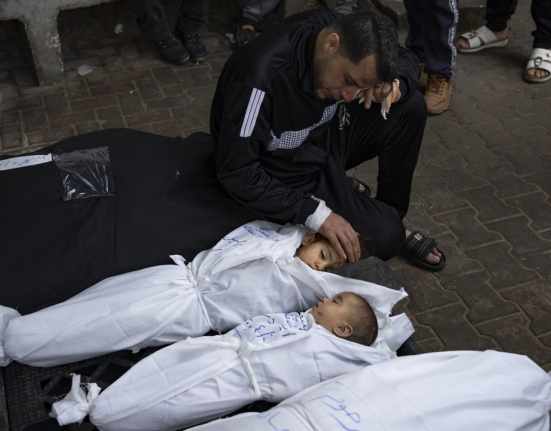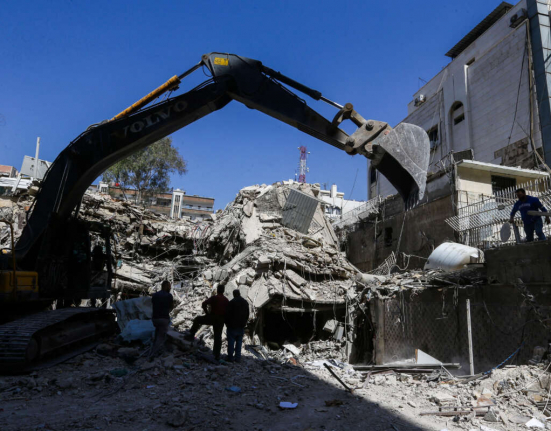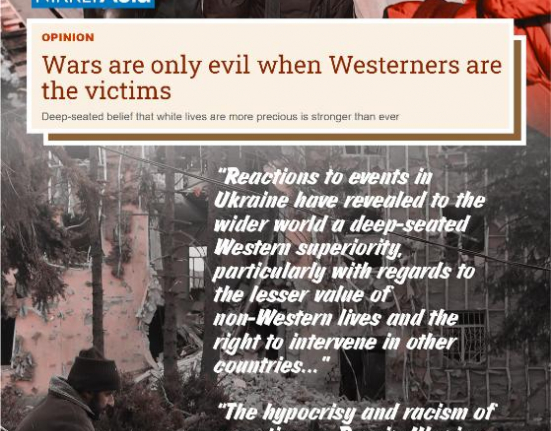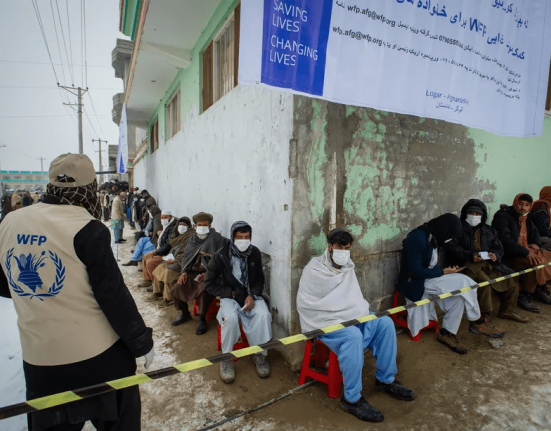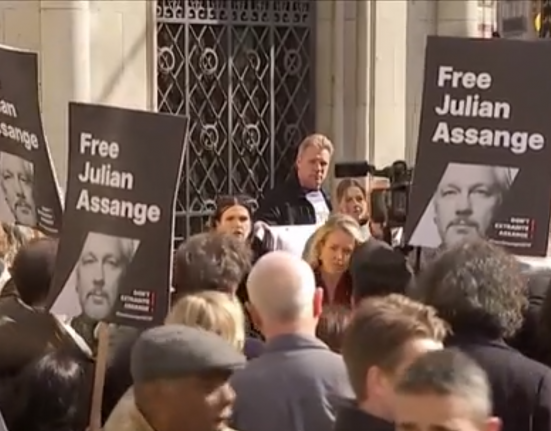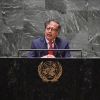
Last week, researchers working with Brown University’s Costs of War project released a substantial report detailing the number of indirect deaths caused by the various wars in which the United States has been involved under the auspices of counterterrorism since September 11, 2001. The report estimates that indirect deaths—those resulting not from combat operations but from the various types of devastation they leave behind—from wars in Afghanistan, Pakistan, Iraq, Syria, and Yemen have already reached 3.6-3.7 million, and continue to grow by the day. This appalling toll comes on top of the nearly one million lives lost to combat in these and other conflicts (including in Libya and Somalia) during the same period. And it serves as a stark reminder of the simple truth that war only serves to destroy lives and livelihoods.
More importantly, the report also helps shift the conversation around war in general and America’s “war on terror” in particular. By arguing that we must include the deaths caused by “the deterioration of economic, social, psychological and health conditions due to war” in the total death count from these conflicts, it offers a much fuller account of the dreadful human cost of war, while also adding weight to the many voices calling on the United States and other governments to repair the damage they have done.
The report’s author, anthropologist Stephanie Savell, identifies four main causal pathways that lead to indirect death: economic collapse, loss of livelihood, and food insecurity; destruction of public services and health infrastructure; environmental contamination; and reverberating trauma and violence. These pathways lead, in turn, to increased poverty, disease and chronic illness, malnutrition, starvation, and gender-based violence, all of which are exacerbated by forced displacement, which has affected 38 million people in these conflict zones. And as the report points out, women and children suffer disproportionally from all these ills.
More than four million dead. This number is certainly shocking, but it is sadly not surprising. For the past two decades, the world has watched as countries in the Middle East and beyond have suffered from the seemingly endless conflicts that have sadly become a hallmark of our era. And researchers are increasingly uncovering the very aftereffects of war that are enumerated in this report: malnutrition in Afghanistan and millions going hungry in Yemen; hundreds of attacks on hospitals in Syria that have left the health care system barely functioning; a dire exodus of professionals from Afghanistan that is leaving the country ill-equipped to face current and future challenges; the collapse of the Iraqi state and the failure to help rebuild it; domestic violence in Syria that has been worsened by the war; and the widescale destruction of infrastructure in Yemen, to name just a few.
None of this is new. The heartbreaking legacy of America’s use of Agent Orange in Vietnam and Laos during the Vietnam War, for example, has direct parallels with the devastating impacts of US military burn pits on Iraqi civilians. And all of these deaths build on the nearly 400,000 estimated civilian lives lost in these wars, whether in Iraq, Afghanistan, or in various American drone strikes. This, too, continues. Just recently, the US military revised a previous claim that it had killed a senior al-Qaeda leader in Syria after the dead man’s family stated that he was not at all involved in terrorism, but was a 56-year-old father of 10 who was tending his sheep when he was killed. All of this begs the question: how many more lives must be lost to the much-touted global war on terror? Day by day the truth grows clearer: the only ones who gain from conflict are warmongers and major weapons manufacturers, and in our thoroughly globalized society, the entire world pays the price.
To be sure, the United States alone is not responsible for all of these millions of indirect deaths. But its involvement in these conflicts alongside many of the world’s governments makes it complicit, if not culpable. The true cost of the war on terror—and of war in general—is a destabilized world full of wounded and impoverished people whose lives have been made increasingly precarious and highly vulnerable to future threats. However, the US would have trouble simply ending its global counterterrorism operations, for the simple fact that it now finds itself in a vicious circle of its own making. The more the US has involved itself in extensive operations across the globe post-9/11, the more resentment for the US government has grown. The dangers of this are clear, for example, in the “lost generation” of children in the al-Hol detention camp in Syria, which has the very real potential to become a prime recruiting ground for the so-called Islamic State and other extremist groups.
Having helped spur the formation of countless new terrorist organizations through its heavy-handed war on terror, the United States and its allies now face more threats (both real and perceived) than ever before. Unfortunately, this means that America will find it difficult to extricate itself from the many conflicts in which it is engaged—especially since the overly aggressive US military prefers to go on the offensive rather than to act defensively—and direct and indirect deaths will therefore continue to rise. And even when the United States does decide to withdraw from its conflicts, it leaves its allies in the lurch, all but hands power to those it was once fighting, and produces new vulnerabilities for the population at large.
But it doesn’t have to be this way. The US military could stop being so trigger happy, especially with its drone program; the government could reevaluate what actually requires military intervention and what could instead be solved through dialogue and diplomacy; and a real effort could be made to work with partner countries to create better programs to stem violence and extremism, rather than trying to stamp them out with more violence. America must learn to truly listen to the people in these countries, since they know best what it is that their societies need. The US and its allies should also take steps to fully address the devastating impacts of war and to repair and rebuild the lives, economies, and societies that they have helped destroy. And it is worth emphasizing that humanitarian aid only goes so far; it is merely a bandage, when what is needed are the funds and expertise to create long-lasting prosperity. This would be a boon for the global economy, for stability, and for peace. After two decades of destructive violence, a reparative approach is just the respite that the world needs.
Source: Arab Center Washington

